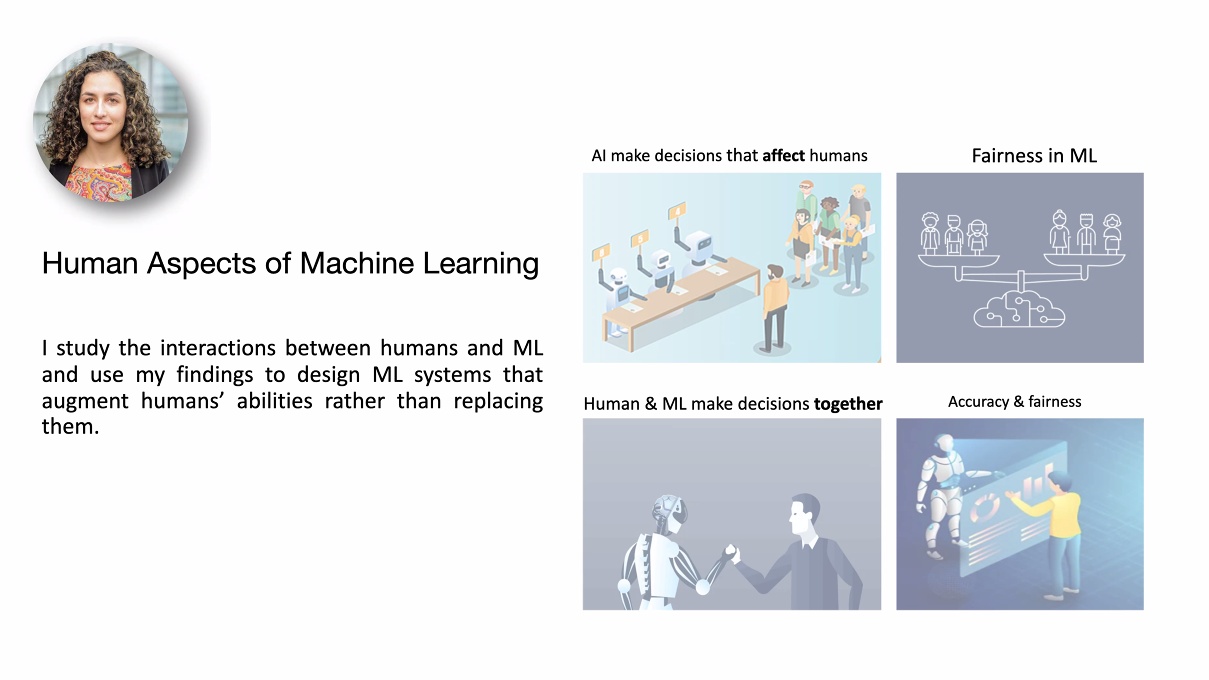Samira Samadi presented her research on the interaction of humans and machine learning (ML) systems during our latest virtual Speaker Series event, which took place on June 17, 2021.
Dr. Samadi is the research lead of the “Human Aspects of Machine Learning” group at the Max Planck Institute for Intelligent Systems (MPI-IS). Her presentation centered on “Building more Ethical ML- for Humans, with the Help of Humans”.
In her presentation, Dr. Samadi focused on the importance of having a clear understanding on how discrimination affects individuals, when building an ML system. Many scholars believe that ML can be significantly fairer in decision-making processes than humans. However, in reality, algorithms have been shown to perpetuate bias just as much as humans do. Therefore, finding the sources of bias in the ML pipeline is not trivial. Ethical concerns may arise from many factors, such as the unethical collection of data. In such cases the individual’s privacy may be at stake. Moreover, data is often mislabeled, which may lead to errors in predictions which might unequally affect the individuals concerned.
Dr. Samadi explained how her research focuses on changing the ML algorithms’ classical objectives by enforcing fairer solutions, which have equal error rates across different demographics. She presented several practical case studies of building more ethical ML for humans, for example designing algorithms to calculate an equal average distance for children commuting to school, based on the individuals’ different demographical clusters.
Currently, Dr. Samadi is working on teaming ML and humans for an overall better performance.
ML can process a vast amount of data, whereas humans can have life-long expertise in a subject, thus having the ability for higher reasoning in ethics and fairness. She discussed facial recognition technology and the ensuing concerns, which have been emerging due to the disparate recognition rates for people of diverse ethnical backgrounds. Adding the human factor into the development loop could significantly improve the accuracy rates, by informing the responsible person about potential weaknesses and strengths of the applied systems.
We had the pleasure of talking to Samira Samadi on the IEAI Q&A: Reflections on AI. We want to thank Dr. Samadi for her fascinating presentation and the great discussion we were able to have with her.

